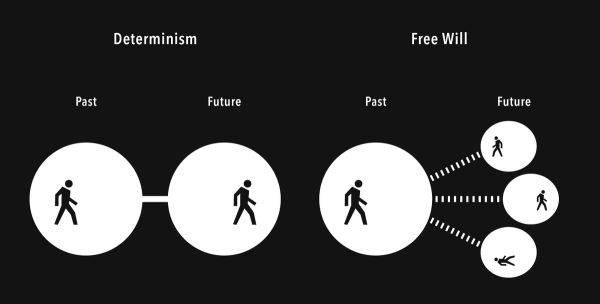Why College Admissions Will Never be the Same
Photo courtesy Getty Images/iStockphoto
Photo Courtesy Getty Images
This past year, the word “test-optional” took over the world of college admissions. The pandemic caused over 1,600 schools to reshape their testing policies and shift toward a more holistic approach to admissions. Most admissions colleges are adopting the trend, and it will completely change the future of college admissions.
Historically, test scores have played a huge role in college admissions. At least that’s what tutors and test prep organizations will say. Regardless, taking the SAT or ACT has been a rite of passage for all college-seeking students. Some take tests multiple times, spending precious hours studying in hopes of raising their scores. Then COVID-19 came, restricting and limiting the availability of testing for many students across the world, especially here in California. As a result, the overwhelming majority of colleges and universities went “test-optional” or “test-flexible” for the 2020-2021 cycle. The UC System even pledged to go “test-blind,” opting to also design its own standardized test. All of this terminology can be confusing, so let’s break it down.
First, “test-optional” means that students can choose whether they want to submit test scores. This is by far the most common policy across universities. Most schools claim that students who do not submit scores will be at no disadvantage. The majority of these will likely and honor this commitment, but there is virtually no data to prove so yet. Meanwhile, some schools have already delivered eyebrow-raising statistics that contradict previous assumptions. For example, Georgetown University released its Early Action numbers in December, just 7.34% of those who didn’t submit scores earned admission. Georgetown is an interesting case, as it has always been an outlier. This year, it calls itself “test-flexible” and requires any SAT or ACT taken to be submitted. Also, Georgetown was the only brand-name school to encourage SAT Subject Tests leading up to the current cycle. But Georgetown shows that unfortunately some admissions offices may not stick to their commitments.
Next, there is the “test-blind” policy, which the UC System will become in 2023 (currently “test-optional”). “Test-blind” means that a school will by no means look at any test score, though there are a number of variations. Oddly, UC schools will only be “test-blind” for two years, until they have developed their own exam by 2025. Very few top schools are currently “test-blind,” but given recent developments, many will switch to this sometime down the road.
Among those developments is the College Board’s removal of the SAT Essay and the SAT Subject Tests (popularized by Georgetown). The College Board made the move in mid-January, stating that it hopes to “reduce demands on students.” Although the decision was somewhat financially based – the nonprofit makes significantly less money from these exams – it’s a sign of a College Board in decline. The termination of the SAT will soon follow, and although rival ACT takes a more student-friendly approach to testing, it, too, will fall.
One significant repercussion of the recent changes in testing policy was a monumental increase in applications to the country’s highest ranked institutions. A common theory explains this: many students without high test scores applied to competitive schools that normally would have seemed out of reach. While the expansion of virtual events also played a large role in this surge, testing is likely the top factor.
As schools figure out how to conduct their admissions reviews with less weight on tests, they will continue to distance themselves from the SAT and ACT. Eliminating test requirements may also help attract students without test-prep opportunities. According to Inside Higher Ed in 2018, a study from the National Association for College Admission Counseling (NACAC) found that “test-optional” schools saw an increase in diversity among student bodies. The same study also found that these schools didn’t show any dip in graduation rates.
Another result of becoming “test-optional” is a decrease in acceptance rate, given that it causes more students to apply. Colleges like this trend because of its positive impact on rankings. Though they sometimes downplay it, admissions teams seem to care a lot about where their schools rank. The annual rankings of Niche, US News, and Princeton Review are focal points of many admissions offices. Don’t believe me? Just look at their recruitment emails which often showcase their most glamorous rankings.
In reality, rankings matter considerably to most students. The higher a school is ranked, the greater appeal it typically has. Thus, higher rankings draw in more applications, making the applicant pool even more competitive. So, as long as application readers can handle an increase in files, “test-optional” is a plus for admissions offices, right? Well, if all top colleges drop test requirements, they’ll likely all receive an increase in applications. Unless some schools see extreme growth, the rankings boost of more applications is mostly an illusion. Therefore, colleges may not gain significant advantages from application increases. It’s also worth mentioning that test scores are a major factor in determining school rankings, though this year’s edition will certainly look different.
Still, various colleges are already extending their “test-optional” policies despite assumptions that tests will be available this fall. Many top-50 schools recently announced that they will be “test-optional” for another year, and in some cases, for the next two or more years. It’s difficult to imagine that schools will revive test requirements any time soon.
If current trends continue, the standardized tests that colleges traditionally require will never hold the same weight and importance. A test-free admissions process is closer than ever, and college admissions is about to become a whole new ballgame. While schools like Georgetown may be slower to adapt to a test-free world, they will eventually opt to conform to the “test-optional” and “test-blind” movements within college admissions.

Grade: 12
Years on Staff: 3
Why are you writing for the Flintridge Press?
I enjoy sharing ideas and topics with the Prep community that I find...







